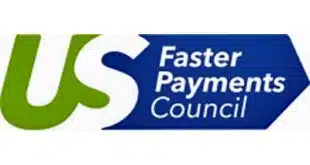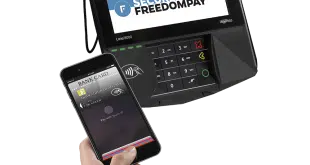With interest in so-called alternative-payments providers running high among merchants and consumers, Moneta Corp. recently announced a new management team and this week unveiled a strategy for capturing online transaction share from both bank cards and other alternative players. Speaking to Digital Transactions News, Guido Sacchi, the Atlanta-based company's newly installed chief executive, says Moneta will work with financial institutions to enroll customers and build up an account base that will help attract merchants. Indeed, part of the strategy is to share Moneta's transaction fees with cooperating banks, says Sacchi, who joined Moneta a few weeks ago after a six-year stint with CompuCredit, a company that works with banks to issue general-purpose credit cards. In return for enrolling their customers in Moneta and helping to promote the payment service and its merchants to them, banks will receive roughly 50 basis points of fee income from each Moneta transaction those customers perform, Sacchi says, while adding the precise payment is negotiable with each bank. Five banks, whom Sacchi can't yet name, are close to signing on, he says, and a pilot with one of them will launch soon. Sacchi argues banks are at risk of being left behind by alternative payments, which enable online transactions through channels the institutions and their networks may not control. “We believe banks are the big losers in online shopping,” he says, explaining that Moneta's strategy is to give them an incentive to promote Moneta to their customers. In this way, he says, merchants are more likely to sign on, as well. “Merchants are interested in enabling alternative-payments players that can provide a big lift in sales,” he says. The way to provide that lift, he says, is to leverage a sizable base of users. Conceived by online bill-payment processor CheckFree Corp. in 2003, Moneta began operations in 2006 and became an independent company earlier this year. It currently has 75,000 enrolled users and 10 merchants that have either implemented the service or have signed on. These include Delta Air Lines, which adopted Moneta as a result of the company's link to a transaction switch operated by Universal Air Travel Plan (UATP), which issues and processes private-label cards for major airlines. With Moneta, consumers enroll their bank-account data and then make payments by selecting the Moneta option on participating merchant sites. At this point, they are redirected to Moneta's servers, where they enter a user name and password to authenticate themselves. If the customer has enrolled through his bank, this page will look like a page on his bank's site. After authentication, the customer returns to the merchant site. Moneta relies on the automated clearing house network to move funds from consumer to merchant accounts. Merchants assume the risk of fraud; the risk of insufficient funds is assumed by either the merchant or the bank, depending on when the problem is detected, Moneta says. Merchants pay approximately 1% to 1.2% plus a dime per transaction. Sacchi says the processor is also planning to introduce payment channels other than the ACH, including credit and debit cards. It already has an agreement in place with fellow Atlanta company Acculynk Inc. to process PIN debit transactions. Acculynk relies on so-called floating PIN pad technology to permit consumers to use debit cards and PINs for online payments to merchants (Digital Transactions News, Aug. 20). These transactions carry an additional 10 to 20 basis points in fees, Sacchi says. The credit card option, he says, will become available before the second quarter next year. The company is looking at introducing transactional credit, as well, to allow account holders to finance purchases, he says. Sacchi sees a number of strategic benefits from working with banks. Consumers will be more willing to shop and pay online, he argues. “There are a lot of online shoppers who are not transacting online at all,” he notes. “To conduct a transaction that is branded with your bank is a way to bring them into the online-payments world.” Banks, meanwhile, fear the erosion of deposits and interchange income to alternative payments and could see Moneta's approach as a solution, Sacchi says. “Banks are extremely scared about declining deposits,” he says. At the same time, the current credit makes it harder for banks to support credit card payments by extending credit limits, Sacchi argues. “We are riding a trend that favors alternative payments, especially debit,” he says.
Check Also
Eye on Networks: FreedomPay Teams Up With Mastercard; Bluefin Partners With Visa
Payments platform FreedomPay has partnered with Mastercard Inc. to provide businesses with a global payment …





